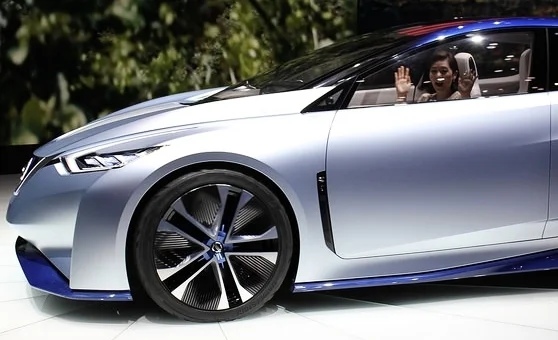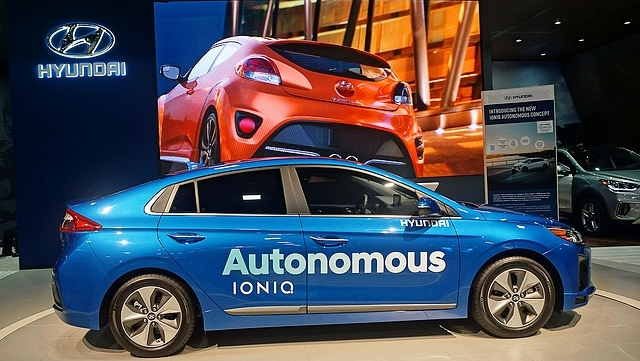Trying to keep up with the fast-growing autonomous car industry, more than 50 bills have been introduced in 20 states to establish some type of regulation for self-driving vehicles. The Detroit Free Press predicts that autonomous vehicles will transform business models by reducing personal car ownership, restructuring urban and suburban development, and eliminating millions of transportation jobs while at the same time creating many more jobs. Michigan was one of the first states that adopted legislation to make it easier for automakers to test self-driving vehicles on a public road without a driver. Governor Rick Snyder said in December, “We should we proud we’re leading the world, right here in Michigan.”
Legislation in Michigan also “allows automated platoons of trucks to travel together at set speeds” and “allows networks of self-driving cars that can pick up passengers.” Additionally, Ford’s self-driving Fusions and GM’s self-driving Chevrolet Bolts have been cleared for more testing.
Michigan is not alone in passing autonomous vehicle legislation. 21 other states and Washington D.C. have also passed legislation or adopted regulations based on a Governor’s executive order. They are: Alabama, Arkansas, Arizona, California, Colorado, Florida, Georgia, Louisiana, New York, Massachusetts, Nevada, North Dakota, Pennsylvania, South Carolina, Tennessee, Texas, Utah, Virginia, Vermont, Washington, and Wisconsin.
However, the lack of uniformity among states may be confusing for owners of self-driving cars and could potentially harm innovation. Chan Lieu, an advisor to the Self-Driving Coalition for Safer Streets (whose members include former Google driverless car project Waymo, automakers Ford and Volvo, and ride-sharing services Uber and Lyft) mentions, “If you had 50 different requirements for 50 different states, each state (might do it) different. It’s going to be very, very difficult to build a vehicle to be effectively sold across the country.” This is all the more reason to distinguish states such as Michigan, as leaders in regulating the autonomous vehicle industry.
Currently, “states are balancing a desire to be viewed as beacons of innovation while also seeking to protect their residents from technology that remains unproven on a large scale.” Federal regulations, on the other hand, may take years to propose and implement new rules on autonomous cars. This timeline may clash with the fast pace self-driving technology is moving at.
In the past, individual states have regulated driver behavior while the federal government has regulated the vehicle itself. A House subcommittee was scheduled to meet on June 27, 2017 to discuss several drafts of 14 self-driving bills in Washington D.C. Gary Peters, a US senator representing Michigan, said legislation should be introduced in the next few weeks that will lead to “a complete re-write of federal regulations for motor vehicles when you take the driver out of the car.” US Transportation Secretary Elaine Chao said in Detroit, Michigan last month, that the presidential administration will reveal revised self-driving guidelines within the next few months, in order to “incorporate feedback and improvements recommended by numerous stakeholders.”
Yet with automakers quickly developing autonomous technology, it will likely be up to individual states to create updated regulations as improvements are made. Safety is the main priority for states looking to support advancements while at the same time minimizing motor vehicle collisions. Jessica Gonzalez, a spokesperson for the California Department of Motor Vehicles, said, “We know this technology can save lives. It can mean mobility for millions of people. So we see all the advantages to it, but at the same time we’re tasked with making sure this technology is safe.”
With Toyota and the University of Michigan collaborating on autonomous vehicles and the US economy preparing for big changes from self-driving cars, it is no surprise that the state of Michigan is heading towards a safe and supportive environment for future technology. In Detroit, major automakers are the backbone of autonomous improvements. USA TODAY Network reports that GM announced the production on 130 self-driving Chevrolet Bolt test vehicles at its plant in Orion township last month, fulfilling the company’s promise to help maintain Michigan’s leadership in the autonomous car industry. Ford is also among automakers that have proposed to launch a fully autonomous vehicle by 2021.
There is no doubt that the Great Lakes State will do innovative things in the coming years as it helps develop and regulate self-driving cars. However, safety is vital when testing new technologies, as even seemingly perfect dream vehicles may put passengers at risk for being involved in motor vehicle crashes. Above all, autonomous vehicles are breaking new ground in the transportation industry, and it will be up to lawmakers-at both state and national levels-to keep up.
The State of Michigan is the birthplace of cars, and continues to make strides in the automobile industry. As self-driving technology rapidly develops, states like Michigan are working to regulate autonomous vehicles at a similar pace. Safety remains the main priority, as no state wants to compromise the lives of citizens because of a cool car with no one driving it. If you or someone you know has been involved in a severe motor vehicle collision, please contact The Michigan Law Firm, PLLC at 844.4MI.FIRM for a free consultation.







